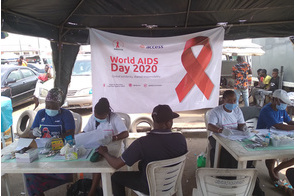NCDC declares new outbreak of Lassa fever

Summary
NCDC said as at 13 January, 2019, a total of 60 confirmed cases had been reported in eight states.
The Nigeria Centre for Disease Control (NCDC) has declared a new outbreak of Lassa fever following the increase in reported cases of the viral disease. In a statement released on Tuesday and signed by Dr. Chikwe Ihekweazu, NCDC's Director-General, the agency said as at 13 January, 2019, a total of 60 confirmed cases had been reported in eight states.
According to the NCDC, it has also initiated an Emergency Operations Centre (EOC) to coordinate the response to the outbreak. The national EOC includes representatives from the World Health Organization (WHO), Federal Ministry of Agriculture and Rural Development, Federal Ministry of Environment, US Centers for Disease Control, and other partners.
Lassa fever, according to NCDC, is an acute viral haemorrhagic illness, transmitted to humans through contact with food or household items contaminated by infected rodents. The seasonal outbreak of the disease usually happens from December to April.
WHO says symptoms of the haemorrhagic fever are similar to those of Ebola virus disease. Person-to-person transmission can also occur, particularly in hospital environment in the absence of adequate infection control measures. Healthcare workers in health facilities are particularly at risk of contracting the disease, especially where infection prevention and control procedures are not strictly adhered to.
“Since the Lassa fever outbreak in 2018, NCDC has worked with states to ensure better preparedness and improved response,” the NCDC said. “In preparation for this year’s emergency phase, NCDC has been providing support to states including the provision of emergency supplies and deployment of Rapid Response Teams (RRT). The RRTs will work with states in response coordination, contact tracing, case management, risk communication and strengthening infection prevention and control practices.”
As part of the response, NCDC said a national research plan has been developed to enable its full integration into the outbreak response to gain a better understanding of the disease.
NCDC, which was established in 2011 with a mandate to detect, investigate, prevent and control diseases of national and international public health importance, has advised members of the public to focus on prevention by practicing good personal hygiene and proper environmental sanitation.
Some effective measures include storing grain and other foodstuffs in rodent-proof containers, disposing of garbage far from the home, maintaining clean households, and other measures to discourage rodents from entering homes. Hand-washing should be practiced frequently. The public is also advised to avoid bush-burning.
Related
-
On World Aids Day, Access Bank promotes HIV prevention
Nigeria has the second largest HIV epidemic in the world and one of the highest rates of new infections in Africa.
-
African dams linked to over 1 million malaria cases annually
New study urges future dam projects to consider better disease control measures.
-
Gates Foundation CEO says polio's return to Nigeria is her 'biggest disappointment'
Nigeria had recently accounted for more than half of the world’s polio cases, but was declared ...










